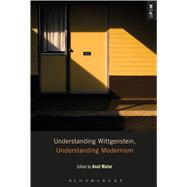Understanding Wittgenstein, Understanding Modernism
, by Matar, Anat; Mattison, Laci; Ardoin, Paul; Gontarski, S. E.- ISBN: 9781501302435 | 1501302434
- Cover: Hardcover
- Copyright: 1/26/2017
In the last half-century Ludwig Wittgenstein's relevance beyond analytic philosophy, to continental philosophy, to cultural studies, and to the arts has been widely acknowledged.
Wittgenstein's Tractatus was published in 1922 – the annus mirabilis of modernism – alongside Joyce's Ulysses, Eliot's The Waste Land, Mansfield's The Garden Party and Woolf's Jacob's Room. Bertolt Brecht's first play to be produced, Drums in the Night, was first staged in 1922, as was Jean Cocteau's Antigone, with settings by Pablo Picasso and music by Arthur Honegger. In different ways, all these modernist landmarks dealt with the crisis of representation and the demise of eternal metaphysical and ethical truths. The Tractatus both expresses and defines this crisis. By the end of the 1920s, Wittgenstein started questioning the picture presented in his Tractatus. In his later philosophy he adopted a rich philosophical language, imbued with metaphors, similes and examples, and attentive to the practical and ordinary uses of language. If the gist of modernism is self-reflection and attention to the way form expresses content, then Wittgenstein's later ideas-in their fragmented form as well as their “ear-opening” contents-deliver it most precisely.
Understanding Wittgenstein, Understanding Modernism shows Wittgenstein's work, both early and late, to be closely linked to the modernist Geist that prevailed during his lifetime. It exposes the intricate ways in which Wittgenstein's ideas echo in contemporaneous philosophical and artistic works and analyzes their uniqueness, on the one hand, and their characteristic modernism, as it reflects in these works, on the other. Arguing for the above claims, its purpose is to show Wittgenstein's oeuvre as the utmost manifestation of modernist presuppositions.






